
Jane Austen was an English novelist known primarily for her six novels, which implicitly interpret, critique, and comment upon the English landed gentry at the end of the 18th century. Austen's plots often explore the dependence of women on marriage for the pursuit of favourable social standing and economic security. Her works are implicit critiques of the novels of sensibility of the second half of the 18th century and are part of the transition to 19th-century literary realism. Her use of social commentary, realism, wit, and irony have earned her acclaim amongst critics and scholars.

Lady Margaret Beaufort was a major figure in the Wars of the Roses of the late fifteenth century, and mother of King Henry VII of England, the first Tudor monarch. She was also a second cousin of Kings Henry VI, Edward IV and Richard III of England.
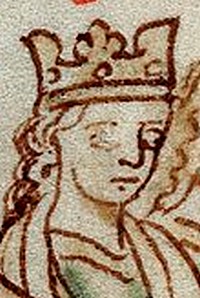
Eleanor of Provence was a Provençal noblewoman who became Queen of England as the wife of King Henry III from 1236 until his death in 1272. She served as regent of England during the absence of her spouse in France in 1253.
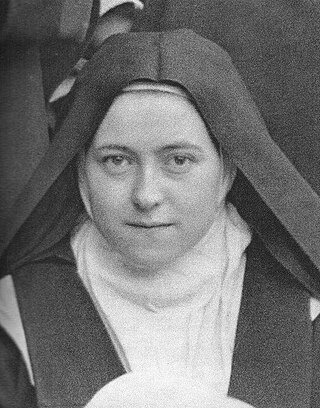
Therese of Lisieux, in religion Therese of the Child Jesus and the Holy Face, was a French Discalced Carmelite who is widely venerated in modern times. She is popularly known in English as the Little Flower of Jesus, or simply the Little Flower, and in French as la petite Thérèse.
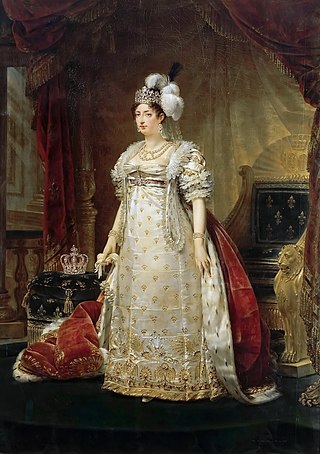
Marie-Thérèse Charlotte was the eldest child of King Louis XVI and Queen Marie Antoinette of France, and their only child to reach adulthood. In 1799 she married her cousin Louis Antoine, Duke of Angoulême, the eldest son of Charles, Count of Artois, henceforth becoming the Duchess of Angoulême. She was briefly Queen of France in 1830.

Frances Milton Trollope, also known as Fanny Trollope, was an English novelist who wrote as Mrs. Trollope or Mrs. Frances Trollope. Her book, Domestic Manners of the Americans (1832), observations from a trip to the United States, is the best known.

Thérèse Raquin is an 1868 novel by French writer Émile Zola, first published in serial form in the literary magazine L'Artiste in 1867. It was Zola's third novel, though the first to earn wide fame. The novel's adultery and murder were considered scandalous and famously described as "putrid" in a review in the newspaper Le Figaro.
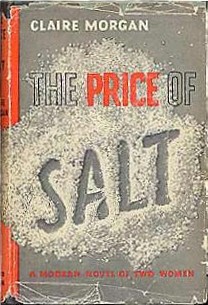
The Price of Salt is a 1952 romance novel by Patricia Highsmith, first published under the pseudonym "Claire Morgan." Highsmith—known as a suspense writer based on her psychological thriller Strangers on a Train—used an alias as she did not want to be tagged as "a lesbian-book writer", and she also used her own life references for characters and occurrences in the story.
The tragic mulatto is a stereotypical fictional character that appeared in American literature during the 19th and 20th centuries, starting in 1837. The "tragic mulatto" is a stereotypical mixed-race person, who is assumed to be depressed, or even suicidal, because they fail to completely fit into the "white world" or the "black world". As such, the "tragic mulatto" is depicted as the victim of the society that is divided by race, where there is no place for one who is neither completely "black" nor "white".

Patricia Kennealy-Morrison was an American author and journalist. Her published works include rock criticism, a memoir, and two series of science fiction/fantasy and murder mystery novels. Her books are evenly divided between the series The Keltiad and The Rock&Roll Murders: The Rennie Stride Mysteries.

Ruth is a novel by English author Elizabeth Gaskell, first published in three volumes in 1853.
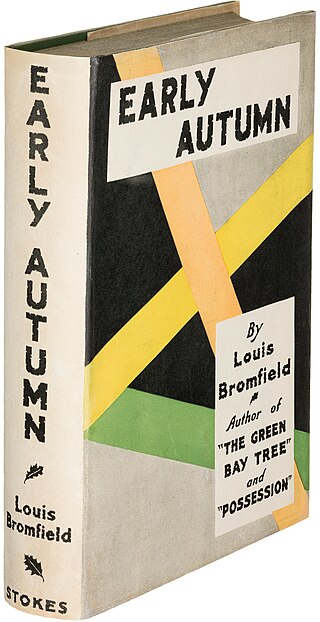
Early Autumn is a 1926 novel by Louis Bromfield. It won the Pulitzer Prize for the Novel in 1927. In 1956, producer Benedict Bogeaus announced that he was adapting the book into a film to be titled "Conquest," but the film was never made.

Maria: or, The Wrongs of Woman is Mary Wollstonecraft's unfinished novelistic sequel to her revolutionary political treatise A Vindication of the Rights of Woman (1792). The Wrongs of Woman was published posthumously in 1798 by her husband, William Godwin, and is often considered her most radical feminist work.

Esther Waters is a novel by George Moore first published in 1894.
Hilda Campbell Vaughan was a Welsh novelist and short story writer writing in English. Her ten varied novels, set mostly in her native Radnorshire, concern rural communities and heroines. Her first novel was The Battle to the Weak (1925), her last The Candle and the Light (1954). She was married to the writer Charles Langbridge Morgan, who had an influence on her writings. Although favourably received by her contemporaries, Vaughan's works later received minimal attention. Rediscovery began in the 1980s and 1990s, along with a renewed interest in Welsh literature in English as a whole.
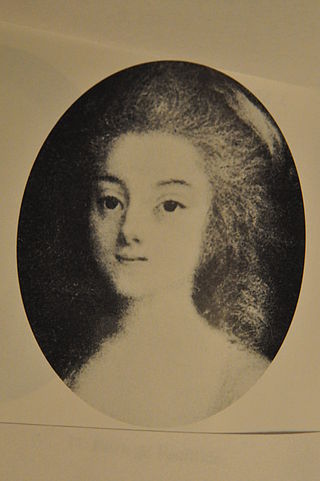
Eliza Capot, Comtesse de Feuillide was the cousin, and later sister-in-law, of novelist Jane Austen. She is believed to have been the inspiration for a number of Austen's works, such as Love and Freindship, Henry and Eliza, and Lady Susan. She may have also been the model from whom the character of Mary Crawford from the novel Mansfield Park is derived.

Mary Wollstonecraft Shelley was an English novelist who wrote the Gothic novel Frankenstein; or, The Modern Prometheus (1818), which is considered an early example of science fiction. She also edited and promoted the works of her husband, the Romantic poet and philosopher Percy Bysshe Shelley. Her father was the political philosopher William Godwin and her mother was the philosopher and women's rights advocate Mary Wollstonecraft.

Our Nig: Sketches from the Life of a Free Black is an autobiographical novel by Harriet E. Wilson. First published in 1859, it was rediscovered in 1981 by Henry Louis Gates Jr. and was subsequently reissued with an introduction by Gates. Our Nig has since been republished in several other editions. It was long considered the first novel published by an African-American woman in North America, though that record is now contested by another manuscript found by Gates, The Bondwoman's Narrative, which may have been written a few years earlier.
Ann Liddell or Ann Clavering was a British political commentator.
Dina Nayeri is an Iranian-American novelist, essayist, memoirist, and short story writer. She wrote the novels A Teaspoon of Earth and Sea (2014) and Refuge (2017) and the creative nonfiction books: The Ungrateful Refugee (2019), The Waiting Place (2020), and Who Gets Believed (2023).














